Respecting Your Clients’ Uniqueness

This page may contain links to Amazon.com or other sites from which I may receive commission on purchases you make after clicking on such links. Read my full Disclosure Policy

Do you get frustrated when a client struggles with an organizing system that works perfectly well for other clients? As a professional organizer, one of the most important things you can learn is that there’s no such thing as “one size fits all” when it comes to organizing! Every person views the world through different eyes, and you need to understand your clients’ uniqueness before you can create solutions that will help them to get and stay organized.
Years before I heard of professional organizers, I noticed that time management and organizing were easier for me than they were for some of the other people I knew, and wondered if I could teach these skills to others. While completing the Myers-Briggs Type Indicator®(MBTI) Qualifying Program, I learned about the connection between an individual’s personality type and the way he or she deals with time and space, and that I was born with personality type preferences (ISTJ) that naturally tend towards systems and order.
Fascinated, I decided to combine my new knowledge with my longstanding passion for organizing. In addition to reading everything I could find on the subject, I conducted several surveys to learn about the typical strengths and challenges faced by the personality types, as well as the most effective organizing and time management strategies for each.
When I explored the subject further, I learned about the organizing profession, and discovered that many were drawn to the field because they had the same or similar personality types to mine. It made sense to me that people who are naturally organized would enjoy this type of work. It soon became apparent, however, that the kinds of systems that work for us wouldn't necessarily be effective for people for whom organization was less comfortable. They may be able to manage it for a while, but will most likely slip back into their old ways after not too long. It's like learning to write with your non-dominant hand – you can do it if you have to because of an injury, but you'll go back to doing what comes naturally as soon as you're able to.
That is not to say that only people who are born with those personality type preferences can be organized – not at all! I’ve met many organizing consultants who are successful because they have a thorough understanding of what it’s like to struggle with organizational challenges, and have developed specialized strategies for overcoming those challenges which they are able to share with their clients.
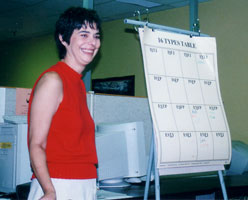
As a qualified MBTI® practitioner, I've spoken to a number of groups about this topic. When someone in a group of professional organizers asked me the best way to convert clients to their way of organizing, I explained that rather than trying to make the clients fit into their systems, they need to adapt their systems to fit their clients. There is no such thing as a "one size fits all" organizing solution!
If your client has difficulty using a detailed to-do list and schedule, look for alternatives.
One of the people I surveyed created an adaption of David Allen's Getting Things Done system by using a Cambridge Wirebound Notebook with Avery removable colored write-on tabs
to divide the pad into several sections representing the various projects he's using it for, e.g., job hunting, household projects, medical notes, household repairs, shopping notes, gift ideas. If he needs more room in a section, he creates another section with a write-on tab.
In each section, he keeps Daily and Project logs with the following column headings:
Date/time Entry: log, notes, thoughts Next to do
By identifying an immediate "next to do" action, it is easier for him to jump back on the project or task when time allows, and keeping a running log with thoughts, notes and feelings enables him to pick up where he left off. It is important for him to remember his feelings and thoughts on a particular project to keep up the momentum, since that's how he makes his decisions and gets motivated.
He uses colored pens and markers to keep it interesting, and to break it up. The spiral allows him to rip out and redo pages when necessary, to keep the log looking neat. Rewriting his notes helps him think things through, since he considers himself an auditory / kinetic learner who has trouble visualizing and thinking without words.
This is just one example of how a traditional left-brained organizing strategy can be adapted to meet the needs of a right-brained creative individual. For more insight on this subject, read any of the following titles.
Work Types
by Jean M. Kummerow, Nancy J. Barger & Linda K. Kirby
Procrastination: Using Psychological Type Concepts to Help Students
by Judith A. Provost
Type and Time Management
by Sharon Fitzsimmons
Type Talk at Work: How the 16 Personality Types Determine Your Success on the Job
by Otto Kroeger, Janet M. Thuesen & Hile Rutledge
If you know of other great resources about organizing and personality type, especially the MBTI, please share it in the comments.
Did you find this post helpful?
Share it with your network, and sign up to get new posts by email every week!


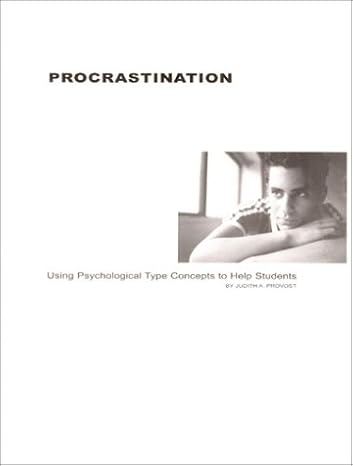







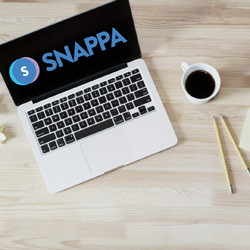




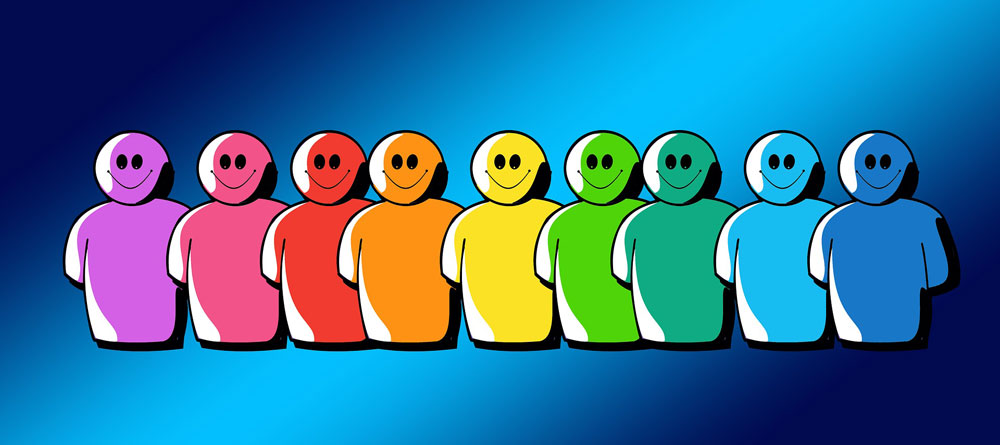
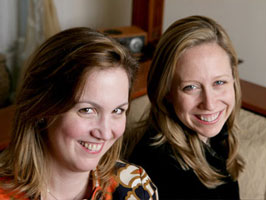


This is so important: the idea that organizing IS NOT a “one-size-fits-all.” People are uniquely different. And while I love taking and learning about the various peronality assessments, they only tell part of the story. Gaining a full understanding of the challenges your clients have, the areas they struggle with, and their strengths are essential in designing systems that work and are maintable for them.
In addition, many people have other influences on the home organizational story. They might have other people living in their household, which can also change the dynamic. Those considerations are also important to consider, especially knowing that people have different thinking and organizational styles and preferences.
Thank you for the important reminder that personality type is only one aspect of an individual’s organizing style, which doesn’t take into account the many external factors that also play a huge role.
There are so many different things that can have an impact on the organization or lack thereof in a person’s home. Personality type is one aspect. I’ve learned through my long association with the Institute for Challenging Disorganization that ADHD, OCD, Hoarding, Procrastination, and chronic disorganization are challenges that I, as a professional organizer, can help a person cope with. I modify strategies and continually tweak them so the person impacted by one or more of these challenges and live as organized as they want to be.
I’m glad you mentioned those challenges, which have a huge impact on organization. It’s crucial to be aware of everything that might have an impact on your client.
I love the idea of the spiral notebook. It’s a great way to keep track of where you on a project.
I was working with a client last week. He had stacks of paper on his desk. As we went through the paper, many he wanted to keep out (vs. file away). I encounter this a lot. We have created both a daily task book and a master project spreadsheet, but still, the paper. What I suggested we try is to put a post-it on the pages that remind him what the next step is on that piece of paper. Sort of like the idea in the spiral bound book. You don’t want to waste time trying to remember what a piece of paper is and what you need to do, right?
Great to continue learning how to customize solutions to the client’s needs, not mine.
Great solution, Seana! Creativity and resourcefulness are definitely good attributes for an organizer to have when working with clients.
I’ve never understood when a professional (usually a coach more often than a professional organizer, though Marie Kondo stands out as an exception) says that their way is the only way. If our way (as organized people) would have worked for an individual with a similar brain or personality type, surely they would have succeeded with the same kind of methods before. Of COURSE everything has to be customized.
The spiral notebook approach is great. I find so many people feel like they’ve failed because they’ve tried the “book” methods for organizing and productivity and it doesn’t work for them. But what works for me as an ESTJ isn’t going to work for an INFP.
I’ll be honest, I’m dubious about most personality type approaches, whether it’s Myers-Briggs or dISC or Big Five or MMPI. I think they all have helpful ways for people to self-identify (and for others to help them find solutions suited for them), but I also find a lot of variation and crossover. But what is absolutely essential is to recognize that none of us are the same.
You and your neighbor could both be 45-year-old divorced mothers’ of two with similar jobs and ADHD, and still find your motivation, activation energy, and delight in different ways, making your productivity and ability to organize require different rewards, skills, and systems. I love that you’ve accented the importance of respecting these kinds of differences. And yay for providing the book list!
Great points, Julie! In one of the MBTI workshops I attended, I spoke with another ISTJ (female, similar age, professional) about our paper planners and our approaches were entirely different. That was an important part of the training, because when you’re first exposed to this stuff it’s easy to assume that all ESFPs are going to want to do things the same way.
Great information. I love how every client is different, therefore their solutions will be different too.
Thanks for the book list. I’ve never read any of these, so will look into them.
If you read any of them, I’d love to know what you think!